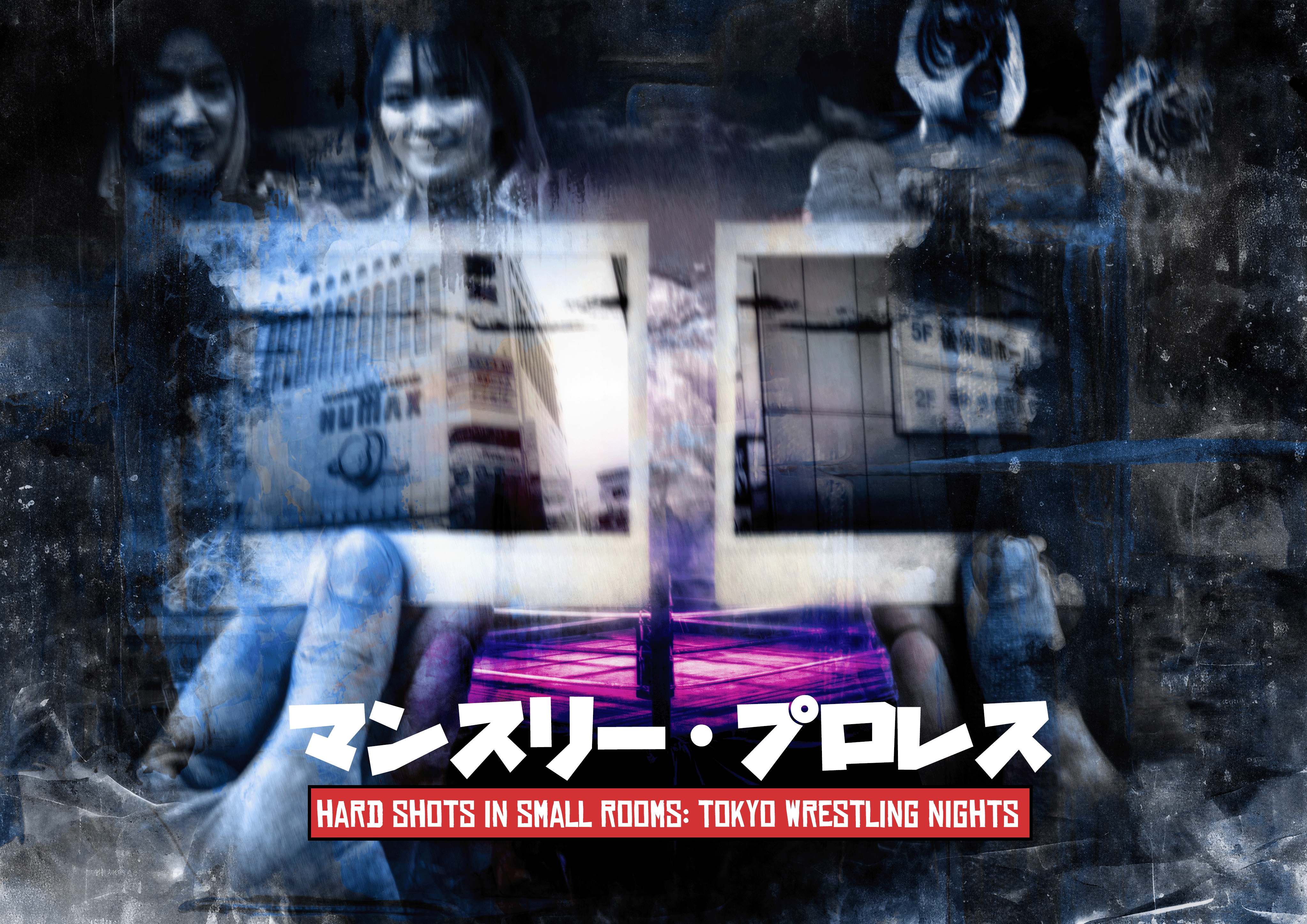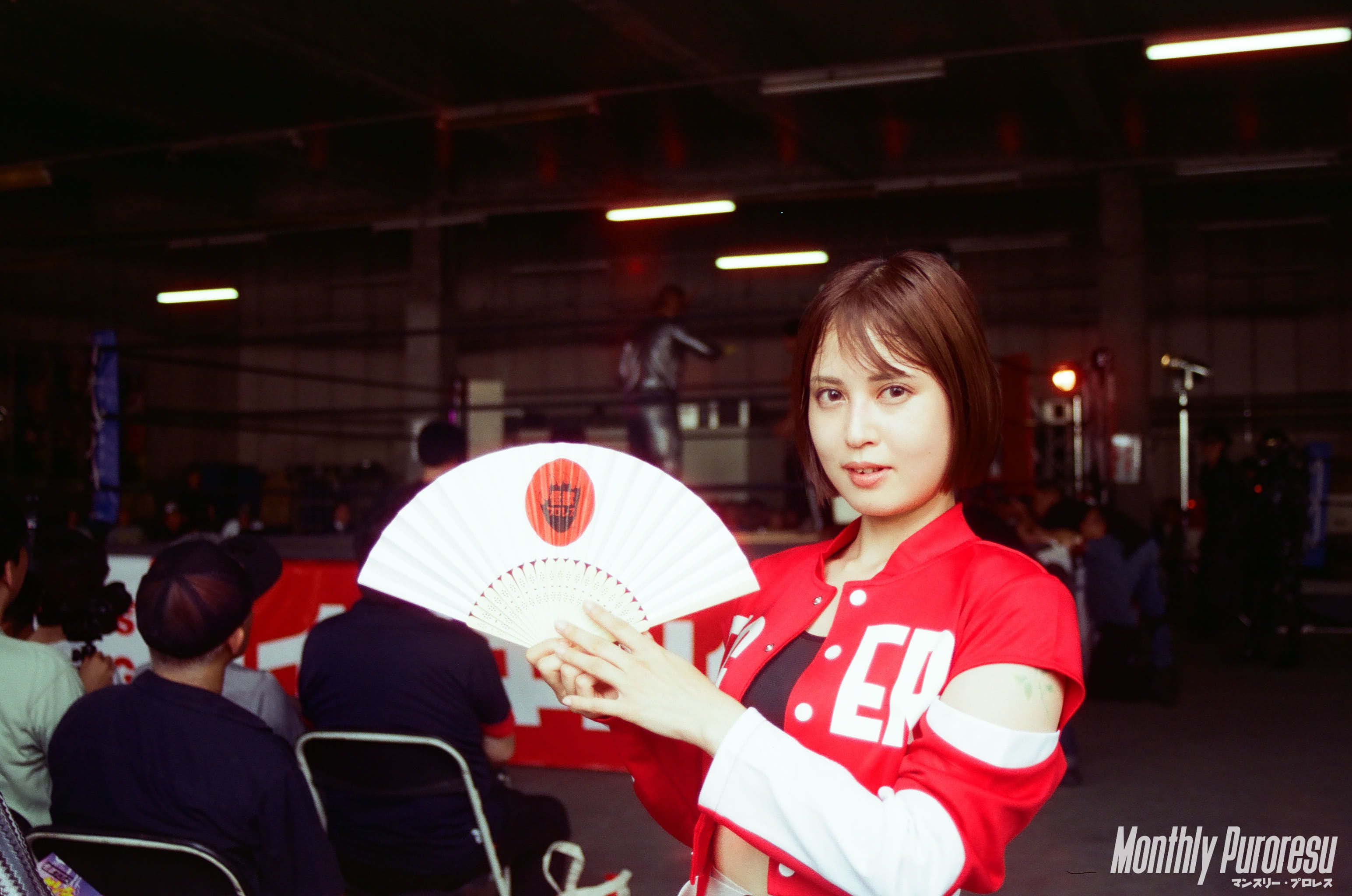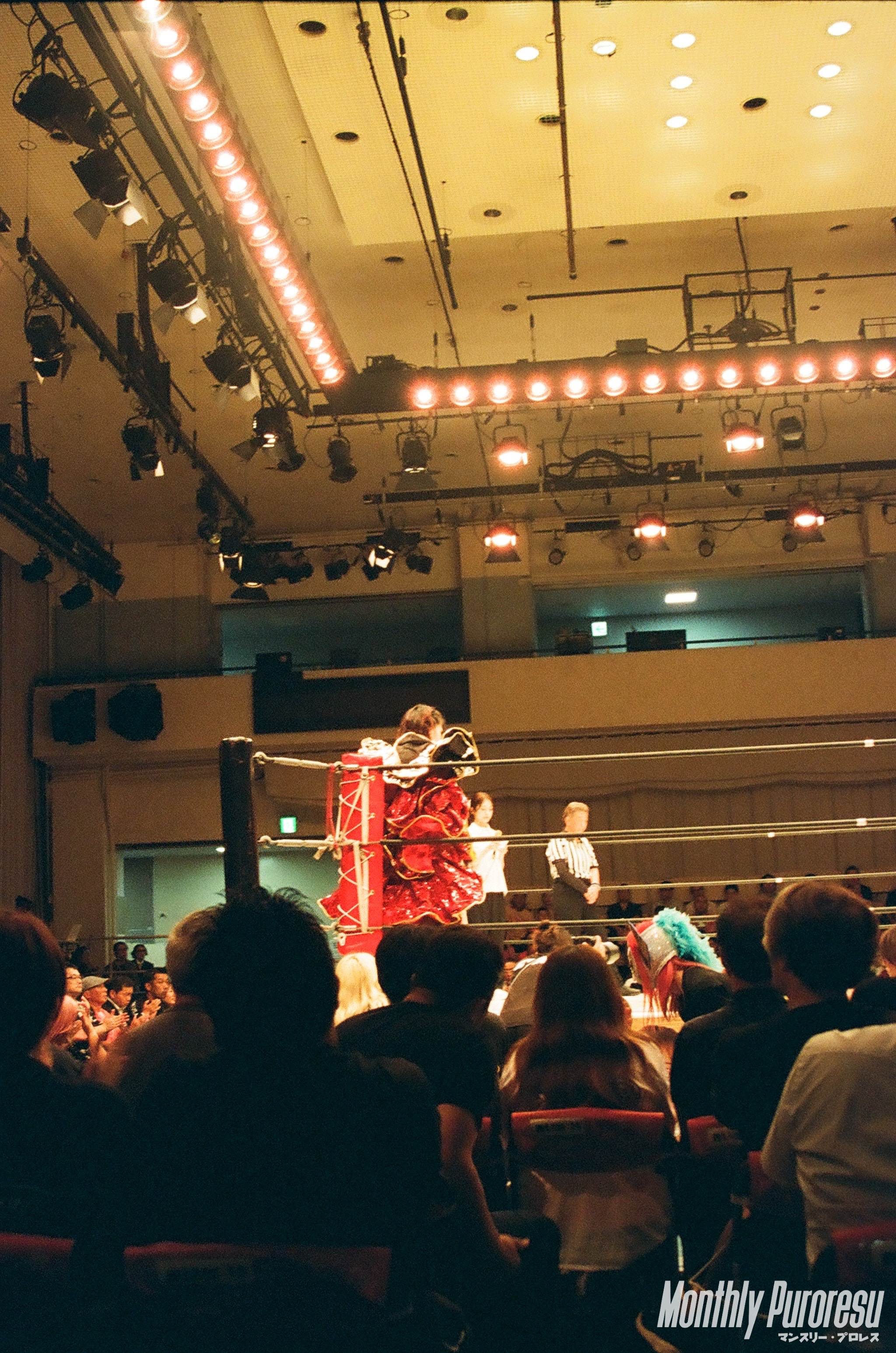Hard Shots in Small Rooms: Tokyo Wrestling Nights

Vertical Bison | MP
Hard Shots in Small Rooms: Tokyo Wrestling Nights
By: Thom Fain
The sweat hits the canvas before the first chop lands. You can hear it – that wet slap of flesh meeting mat – and then comes the strike itself, palm against chest, and the sound cracks through Shinjuku FACE like a rifle shot in a canyon. The man in the third row winces. The woman beside him doesn’t blink. She knows what’s coming next.
This is puroresu, as close to the real thing as we get these days.
The ring sits under lights that have seen a thousand nights like this one, maybe more. No pyrotechnics. Well, maybe sometimes; only when the executives decide this show is a big deal.
But usually?
It’s minimal. Japan always uses minimalism to accent the stuff that really matters.
No entrance ramps that cost more than a Tokyo apartment. Just four corner posts, three ropes pulled tight enough to hum when a body hits them, and a canvas that will be dark with sweat and maybe blood before the main event ends. The crowd – maybe three hundred or, on a good night, a thousand – are packed into folding chairs and standing room. They watch with the intensity of monks at prayer.
They know every hold. Every counter. Every near-fall that’s really near.
The wrestler throws a chop and the sound echoes. Another one. The chest goes red, then purple. Nobody’s pulling anything here. Kayfabe never died in these rooms because kayfabe was always about respect—respect for the work, respect for the people who paid to see it, respect for the woman across the ring who’s about to kick your head clean into the cheap seats.

35mm | Summer 2025 | Thom Fain for MP
Korakuen Hall. Differ Ariake. Osaka Prefectural Gym. These places have names that mean something. They’re not named after banks or energy drinks. They’re just there, solid and permanent, hosting the same controlled violence they’ve hosted for decades. The buildings remember Antonio Inoki and Giant Baba. The walls absorbed those matches and held onto them. When you walk into Korakuen, you can feel it – the weight of every dropkick, every backdrop, every submission that made a man tap or pass out before she’d quit.
The wrestlers here move like they mean it because they do mean it. A forearm isn’t a setup for the next spot. It’s a forearm, thrown with bad intentions, and the guy taking it sells it like his jaw just met a tire iron because that’s what it feels like. The crowd erupts; not because they’re told to, not because someone’s theme music is popular… but because they just watched two professionals try to prove who’s better at this violent dance, and the answer matters.
Between matches, vendors sell beer and karrage. The smell of deep fried chicken mixes with sweat and liniment. Someone’s selling programmes. Someone else is buying them. The ring announcer’s voice is sharp and formal, every syllable crisp, and when he introduces the next competitor the crowd responds with rhythmic clapping, building like a heartbeat.

35mm | Summer 2025 | Thom Fain for MP
Then the bell rings.
The wrestlers lock up. No dancing. No pandering. Just the work – hard, stiff, real enough to make your teeth hurt watching it. A German suplex, and the man lands on his neck and shoulders like he’s supposed to, like he’s been doing it since he was seventeen and will keep doing it until his body gives out. The crowd knows this. They appreciate it with applause that sounds like respect.
This is why people travel. Americans and Europeans and Australians book flights and hotels just to sit in these small buildings and watch this particular violence unfold. Because here, in these rooms that hold a thousand or two people instead of tens of thousands, the thing hasn’t been diluted or packaged or made safe for sponsors. It just is what it is: two people, a ring, and the question of who’s better tonight.
The main event ends with a pinfall that took thirty minutes to earn. The winner doesn’t celebrate much. The loser doesn’t complain. They bow to each other, bow to the referee, bow to the crowd. Everyone bows back.
Behind the curtain, the air tastes different. Thick with exertion and relief and something else – the knowledge that they survived another one. The wrestlers push through into the backstage area, chest still heaving, welts already forming where the chops landed hardest. Someone hands them a towel. They take it.
The adrenaline hasn’t left yet. You can see it in how they move, still wound tight, still operating on that frequency that only exists between the bells. Their gear is soaked through. The pain will come later, in the hotel room, when the body remembers everything it just endured. Right now there’s just the aftermath – the standing, the breathing, the being done with it for tonight.
They check each other, Daijobou? A nod. Maybe some words in Japanese that mean the same thing in any language after a hard match. The respect that was in the ring followed them back here. Sometimes, the fighter who just spent twenty minutes trying to break your arm is the same one making sure you’re okay now. It was, after all, a measure of tōkon more than anything else.
Sometimes, the vibe shifts. Someone cracks a joke. Someone else laughs, and suddenly they’re not warriors anymore – they’re just people who are really good at trying to kill each other when the bell sounds. The smiles come out. Big ones. The kind that only show up when you’ve done something hard and done it right and everyone knows it.
Sometimes they crack open beers or sports drinks. You might find one or two of them near the loading dock, surprised to see the English broadcaster walking by, as the light a cigarette – because this is Japan and backstage is backstage. The Young Lions – the trainees – are already breaking down the ring, hauling equipment, doing the work that earns them the right to eventually have someone hand them a towel after their own match. They move quickly, efficiently, heads down. The veterans barely notice them, but they remember being them.
Someone’s getting their shoulder taped for tomorrow. Someone else is on their phone, already watching clips of tonight’s match that are somehow already online. The conversations overlap – some in Japanese, some in broken English, all in the universal language of professional violence successfully executed.
The gear comes off slowly. Knee pads. Elbow pads. Boots that have seen a hundred venues just like this one. Underneath, the bodies tell their own stories – old scars, new bruises, the roadmap of a career spent falling correctly. They’ll shower eventually. Put on street clothes. Blend into the crowds of Tokyo, somewhere outside their home train stations.
By then the lights already have come up and dedicated fans have filed out into the Tokyo night, walking past conbini and izakayas, carrying with them the memory of something honest and hard and good. Something, quite frankly, that’s hard to put into words. But for five years I’ve been trying to do it in the best English I know – for the culture.
Shinjuku FACE will be there tomorrow. And the night after that. Solid and square. Waiting for the next group of people who want to see the real thing.
















